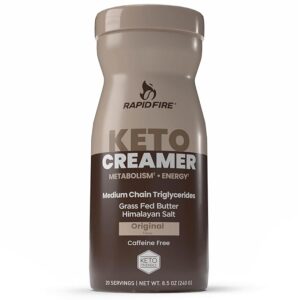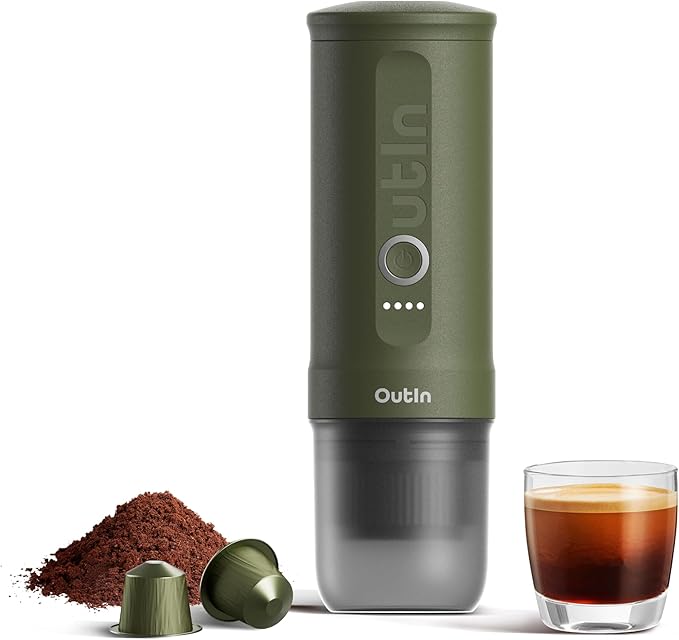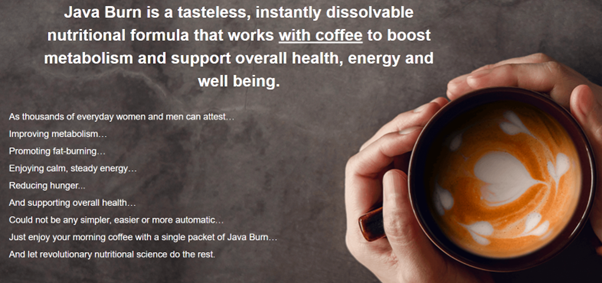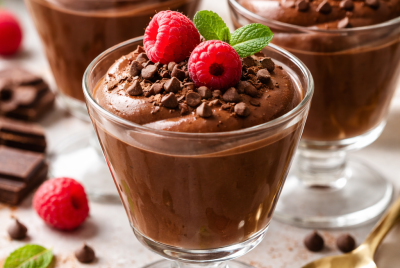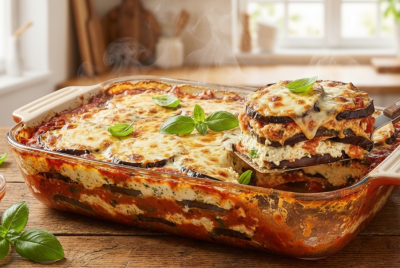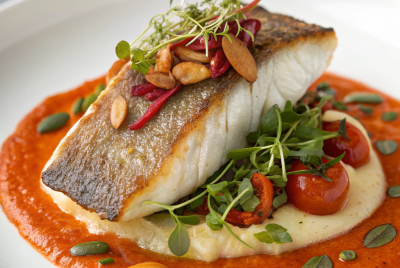Is Coffee Keto? What You Need to Know
If you’re following a ketogenic diet, you’ve likely wondered: Is coffee keto? Great question! As someone who loves her daily cup of joe and sticks to a low-carb lifestyle, I’ve done my fair share of digging into this topic. The answer is, well, both yes and no, depending on how you drink your coffee. Let’s break it down and explore how coffee fits into the keto world, its benefits, and how you can enjoy it while maintaining ketosis. So grab your morning coffee (hopefully keto-approved) and let’s dive in.
For those looking to shed some pounds, read on to discover a revolutionary product that will help you lose weight just by drinking one cup of coffee daily.
What Is the Ketogenic Diet?
Before we delve into coffee, let’s quickly review what the ketogenic diet is all about. In simple terms, it’s a high-fat diet that drastically limits carbohydrates and focuses on healthy fats. By reducing your carb intake, your body enters a metabolic state called ketosis, where it burns fat for fuel instead of carbs.
For keto enthusiasts, keeping carbs to a minimum is crucial for maintaining ketone production. But how does coffee fit into this equation?
Is Coffee Keto? The Basics
Yes, plain coffee black is keto-friendly. Why? It contains zero carbs and zero calories—perfect for anyone aiming to maintain ketosis. In fact, many keto dieters rely on coffee to boost energy levels and improve mental clarity, especially during intermittent fasting. However, things can get tricky when you start adding sweeteners, creamers, or other flavorings.
Why Coffee Can Be Keto-Friendly
The good news is that if you stick to plain black coffee, you’re in the clear. It’s essentially water and coffee beans, which means no carbs, sugars, or other nasty additives. So, whether you’re sipping cold brew coffee or a hot cup of black coffee, rest assured that you’re not sabotaging your ketosis.
How Coffee Impacts Your Ketogenic Diet
Let’s talk about how coffee aligns with the ketogenic diet beyond just being carb-free. Coffee has been shown to boost metabolism and support fat burning—both key components of keto. The caffeine content in coffee stimulates the nervous system, helping increase metabolic rate by up to 11%, according to numerous studies.
However, there’s more to it. Chlorogenic acid, a compound found in coffee, has been linked to improved insulin sensitivity and lower blood sugar levels—vital for those on a low-carb diet like keto.

Bulletproof Coffee: A Keto Staple
If you’re serious about keto, you’ve probably heard of Bulletproof coffee or butter coffee. This coffee concoction, made by blending coffee black with grass-fed butter and MCT oil, is a keto powerhouse. The MCT oil contains medium-chain triglycerides, which your body converts into ketones, providing an instant source of energy and helping to maintain ketosis.
You’ll find a Bulletproof coffee recipe at the end of the article.
Keto Coffee Creamers: A Game-Changer
Plain coffee is great, but sometimes you want something a little creamier. That’s where keto-friendly creamers come in. Traditional creamers are loaded with added sugars and carbs, but there are plenty of keto-friendly alternatives available at grocery stores. Look for ones made with unsweetened almond milk, coconut milk, or plant-based milks that contain zero carbs and no grams of sugar.
Best Fats to Add to Coffee
Looking to make your coffee even more keto-friendly? Here are some healthy fats that you can add:
- MCT oil: Helps boost ketone production and provides quick energy.
- Grass-fed butter: A staple in bulletproof coffee, packed with fatty acids.
- Coconut oil: Another popular option for keto coffee.
- Heavy cream: Full of fat content, just be sure to check the carb count.
Adding these fats turns your coffee into a high-fat, keto-friendly way to start your day and keep your body in ketosis.
The Downside of Adding Sugars to Coffee
Here’s where many people go wrong: adding sugars or artificial sweeteners to their coffee. While some sugar-free sweeteners like stevia or monk fruit extract are keto-approved, most sweeteners—especially the ones you’ll find at coffee shops—are not. Always avoid added sugars and be cautious with your choice of sweetener. Natural sweeteners like monk fruit are an excellent choice for keeping your coffee low-carb.
Coffee Additives to Avoid
Not everything you stir into your coffee is good for keto. Here’s what to avoid:
- Whole milk: Contains grams of carbs that can add up quickly.
- Regular coffee creamers: Loaded with sugars and carbs.
Instead, reach for unsweetened almond milk, unsweetened coffee, or coconut milk for a great alternative.
How Much Coffee Is Too Much?
You may be wondering, “Can I drink too much coffee on keto?” Well, that depends. While there’s no strict rule about coffee consumption on a high-fat diet, too much caffeine content can affect hormonal imbalances and disrupt your sleep. So, moderation is key. Stick to 2-3 cups of coffee a day, depending on your tolerance.
Decaf Coffee: A Keto Option?
If you’re sensitive to caffeine but still love the taste of coffee, decaf coffee is a great addition to your keto plan. Like regular coffee, it contains zero carbs, making it a safe option for your daily cup of joe.
Coffee and Intermittent Fasting
If you’re combining intermittent fasting with keto, coffee can be your best friend. Plain black coffee won’t break your fast, and it may even enhance the benefits of fasting by boosting fat burning and improving mental focus.
Coffee and Cognitive Function
Another reason to love coffee on keto is its impact on the brain. Thanks to its caffeine content and medium chain triglycerides in things like bulletproof coffee, coffee can improve cognitive function and give you that much-needed morning boost.

Coffee and Weight Loss
You might be surprised, but your daily cup of black coffee can actually be an ally in your weight loss journey, especially if you’re following a low-carb diet like keto. Let’s break down why coffee is often linked with fat burning and how it can support your goals.
Boosts Metabolic Rate
One of the biggest benefits of coffee when it comes to weight loss is its ability to increase your metabolic rate. The caffeine content in coffee has been shown to enhance thermogenesis—the process where your body generates heat and burns calories. So, sipping on your morning coffee can actually give your metabolism a little jumpstart, helping you burn more calories throughout the day.
Supports Fat Burning
Caffeine helps break down body fat, turning it into free fatty acids that can be used for energy, which is especially helpful for those on a ketogenic diet. The medium-chain triglycerides in MCT oil, often used in Bulletproof Coffee, further promote ketone production and encourage your body to use fat as fuel, making it an excellent choice for keto dieters looking to shed a few pounds.
Suppresses Appetite
Coffee is also known to help suppress appetite, making it easier to stick to your low-carb diet without constantly feeling hungry. This can be a game-changer if you’re working on reducing your carb intake and need something to tide you over between meals. Pairing your coffee with healthy fats like grass-fed butter or coconut oil can keep you feeling fuller for longer, reducing the urge to snack.
Works Well With Intermittent Fasting
Many people incorporate black coffee into their intermittent fasting routines. Since plain black coffee contains zero calories, it won’t break your fast, but it will help keep you alert and energized during those fasting windows. This can be particularly helpful for those aiming to lose weight, as intermittent fasting has been shown to boost fat burning and improve insulin sensitivity.
Low-Calorie, Zero-Carb Option
For those tracking calories or carbs, black coffee is a dream. With zero calories and zero carbs, it’s a great beverage to enjoy without worrying about impacting your diet. Just be cautious about added sugars or artificial sweeteners in coffee drinks, which can derail your progress.
The Bottom Line
While coffee alone isn’t a magic weight loss solution, its ability to increase metabolic rate, enhance fat burning, and suppress appetite can certainly support your efforts. Whether you prefer a cup of black coffee or a frothy Bulletproof Coffee, it’s a great addition to a keto-friendly way of eating and an effective tool to help you on your weight loss journey.
However, if your aim is to lose weight effectively with minimal effort, without exercise or compromising on your favorite desserts, this product is what you might have been looking for all this time. It’s as easy as drinking your daily cup of joe.
Popular Choices for Keto Coffee
Some popular choices for keto coffee include:
- Espresso shots: A concentrated option with zero carbs.
- Iced coffee: As long as it’s unsweetened and made with keto-friendly creamers.
- Cold brew coffee: A smoother, less acidic option that’s easy on the stomach.
Coffee’s Health Benefits on Keto
Aside from supporting ketosis, coffee comes with many health benefits, including reduced risk of heart disease, improved insulin sensitivity, and better brain function. So not only does coffee fit into your keto-friendly coffee plan, but it also supports your overall health.
Side Effects to Watch Out For
Though coffee has many benefits, too much of it can lead to unwanted side effects like jitteriness, digestive issues, or even increased heart rate. If you notice these effects, try switching to decaf coffee or cutting down your coffee intake.
Conclusion
So, is coffee keto? The answer is yes, as long as you’re mindful of what you’re adding to your coffee—avoiding sugars and carb-laden creamers—you can enjoy your morning cup of coffee guilt-free. Whether you’re a coffee lover sipping butter coffee or someone who enjoys a cup of black coffee, there are countless ways to make your coffee work for you on keto. Just remember to stick to keto-friendly creamers, fats like MCT oil, and low-carb options like unsweetened almond milk.
FAQs
1. Can I have coffee while following a ketogenic diet?
Yes, as long as it’s plain black coffee or made with keto-friendly creamers and fats like MCT oil or coconut oil.
2. What can I add to my coffee on keto?
Stick to grass-fed butter, MCT oil, unsweetened almond milk, or coconut milk for a keto-approved coffee.
3. How much weight is lost by black coffee?
Black coffee itself doesn’t directly cause weight loss, but it can aid in the process when combined with a low-carb diet like keto. It contains zero calories and can help boost your metabolic rate, increase fat burning, and improve energy levels, especially during fasting. However, weight loss results vary from person to person and depend on your overall diet and lifestyle choices.
Adding this product to your coffee will effectively help you lose your excess pounds.
4. Will coffee break my intermittent fast?
No, plain black coffee won’t break your fast. In fact, it can support fat burning and help with mental focus during fasting.
5. How much coffee can I drink on keto?
Moderation is key. Stick to 2-3 cups of coffee per day, as too much caffeine can lead to side effects like jitteriness or digestive discomfort.
6. Is decaf coffee keto-friendly?
Yes, decaf coffee is a great alternative if you’re sensitive to caffeine. Just be sure to avoid added sugars and creamers.
7. Can I drink black coffee on an empty stomach?
Yes, you can drink black coffee on an empty stomach, and many people do, especially during intermittent fasting. It can help boost metabolism, increase mental clarity, and support fat burning. However, for some, drinking coffee on an empty stomach may cause acidity or digestive discomfort. If you experience this, try pairing it with healthy fats like MCT oil or butter coffee to reduce irritation.
8. What are the benefits of coffee?
Black coffee has numerous benefits, especially for those on a keto diet. It contains zero calories and zero carbs, making it a great drink for maintaining ketosis. It also boosts metabolic rate, enhances fat burning, and increases mental focus. Thanks to its high caffeine content, black coffee can improve cognitive function, elevate energy levels, and support insulin sensitivity. Additionally, it’s rich in antioxidants like chlorogenic acid, which may lower the risk of heart disease and help
Bulletproof Coffee Recipe – Printable Recipe Card

Bulletproof Coffee
Equipment
- Measuring spoons (for measuring the MCT oil and butter)
- Mug (to enjoy your Bulletproof Coffee)
Ingredients
- 1 cup of black coffee preferably freshly brewed using high-quality coffee beans
- 1-2 tablespoons of MCT oil medium-chain triglycerides
- 1-2 tablespoons of grass-fed butter or ghee
- Optional: a pinch of cinnamon or vanilla extract for extra flavor
Instructions
- Brew your coffee: Start by brewing a cup of black coffee. You can use a French press, drip coffee maker, or any method you prefer. Make sure it's fresh and hot.
- Add the fats: Pour your hot coffee into a blender. Add 1-2 tablespoons of MCT oil and 1-2 tablespoons of grass-fed butter (or ghee). MCT oil helps increase ketone production and provides quick energy, while grass-fed butter adds healthy fats and fatty acids.
- Blend it up: Blend the coffee, MCT oil, and butter for about 20-30 seconds. Blending is key to creating a smooth, frothy texture—similar to a latte.
- Serve and enjoy: Pour your blended Bulletproof coffee into a mug and enjoy! You can add a pinch of cinnamon or vanilla for extra flavor if you'd like.


